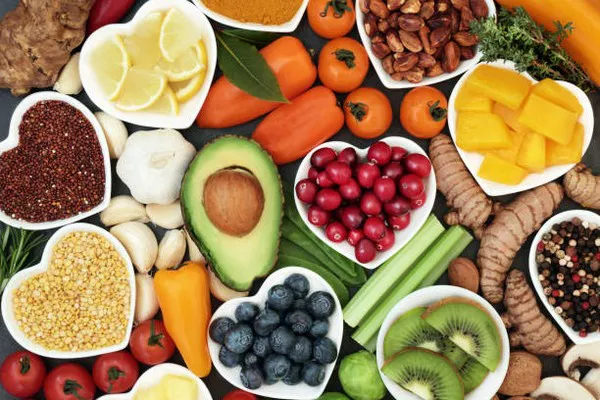In the UK, two-thirds of adults are classified as overweight or obese, a situation that poses risks for a range of health conditions, including Type 2 diabetes, heart disease, and certain cancers. While excess weight itself is not inherently dangerous, it significantly increases the likelihood of developing chronic health problems.
When it comes to weight loss, experts agree that diet plays a crucial role. Although no single food can guarantee weight loss, certain nutrient-dense options can make the process more manageable by curbing hunger, reducing cravings, and even triggering fat-burning processes. These foods also provide essential vitamins and minerals necessary for maintaining overall health.
Experts, including Ulrike Kuehl, Head of Nutrition at the metabolic health app Lumen, stress the importance of focusing on whole, nutrient-dense foods. Such foods not only regulate appetite but also support metabolic flexibility, which is the body’s ability to efficiently switch between burning carbohydrates and tapping into fat reserves for energy.
Here are the top food choices that experts recommend to help with weight management, along with a few to steer clear of.
1. Breakfast Eggs: A Filling Choice
Eggs have long been a subject of debate in weight-loss circles. While their rich protein content might suggest they’re indulgent, they can actually help curb overeating, according to Dr. Carrie Ruxton, an independent dietitian. Her research, published in Nutrients journal, shows that eggs increase feelings of fullness and reduce calorie intake later in the day. Eggs’ protein not only helps preserve muscle mass during weight loss but also boosts thermogenesis, the process of calorie burning, says Nichola Ludlam-Raine, a specialist dietitian.
2. Canned Beans and Lentils: Appetite-Control Allies
If you’re looking to control your appetite without resorting to weight-loss medications, consider tinned beans and lentils. Dr. Megan Rossi, a dietitian and research fellow at King’s College London, explains that prebiotic fibers in these legumes help stimulate the production of the appetite-suppressing hormone GLP-1—targeted by medications like Ozempic. Additionally, legumes’ low energy density and high nutrient content make them filling without adding excess calories, making them an ideal option for weight management.
3. Whole Almonds and Walnuts: Satisfy Hunger Healthily
Despite being calorie-dense, whole almonds and walnuts are excellent for controlling hunger. Packed with healthy fats, protein, and micronutrients like magnesium and vitamin E, these nuts promote prolonged fullness and better blood sugar control. Dr. Rossi advises eating whole nuts rather than nut butters, as the structure of whole nuts slows fat digestion, resulting in fewer calories absorbed by the body.
4. A Balanced Meal of Chicken, Broccoli, and Quinoa
Combining lean protein from grilled chicken with the high-fiber, nutrient-rich benefits of broccoli and quinoa offers a balanced, satiating meal for weight loss. Chicken helps regulate hunger by influencing appetite hormones, while cruciferous vegetables like broccoli offer satiety with minimal calories. Quinoa, a whole grain packed with both protein and fiber, further supports sustained energy and reduced cravings, making it a more beneficial alternative to white rice.
5. Green Tea and Coffee: Boost Metabolism and Control Appetite
Staying hydrated is important for managing hunger, but green tea and coffee offer additional weight-loss benefits. Green tea contains catechins, antioxidants that have been shown to increase fat oxidation, potentially enhancing fat-burning both at rest and during physical activity. Coffee, thanks to its caffeine content, can slightly enhance metabolism, helping to maintain an active lifestyle. However, it’s important to note that these beverages won’t offset the effects of an unhealthy diet.
Foods to Avoid When Trying to Lose Weight
While focusing on nutrient-dense foods is essential, experts also advise steering clear of several types of food that could hinder your weight loss efforts.
1. Ultra-Processed Foods (UPFs)
Ultra-processed foods, which dominate supermarket shelves, are often high in refined sugars, unhealthy fats, and additives. These foods tend to stimulate the brain’s reward centers, encouraging overeating, and can lead to a rapid rebound in hunger. Consuming large quantities of UPFs has been linked to a significant increase in daily calorie intake—about 500 extra calories—and reduced calorie expenditure during digestion. Opt for whole food alternatives like sourdough bread and quality cheese instead of refined options like white bread and processed cheeses.
2. ‘Diet’ Foods: Not a Healthier Alternative
Diet foods marketed as low-calorie or fat-free may seem like a better choice, but they often contain refined carbs, added sugars, and artificial ingredients that can trigger inflammation. Many of these “diet” foods are low in fiber and fail to promote feelings of fullness, which can lead to overeating later. Experts recommend focusing on whole, nutrient-dense foods that offer better satiety and nutritional value.
3. Alcohol and Diet Drinks: Limited Benefits
Both alcohol and diet sodas can negatively impact weight loss efforts. Alcohol is calorie-dense, and when mixed with sugary drinks, it adds unnecessary calories to your diet. Moreover, alcohol’s dehydrating effects can trigger hunger signals, prompting overeating. Diet sodas, although lower in calories, often lead people to compensate by eating more, ultimately offsetting any benefits from the reduced-calorie beverage. It’s better to stick with water, tea, coffee, or 100% fruit juice.
By prioritizing these science-backed food choices and avoiding harmful ultra-processed products, individuals can better manage their weight and improve their overall health.
Related Topics:
What Food to Eat When Working out to Build Muscle


